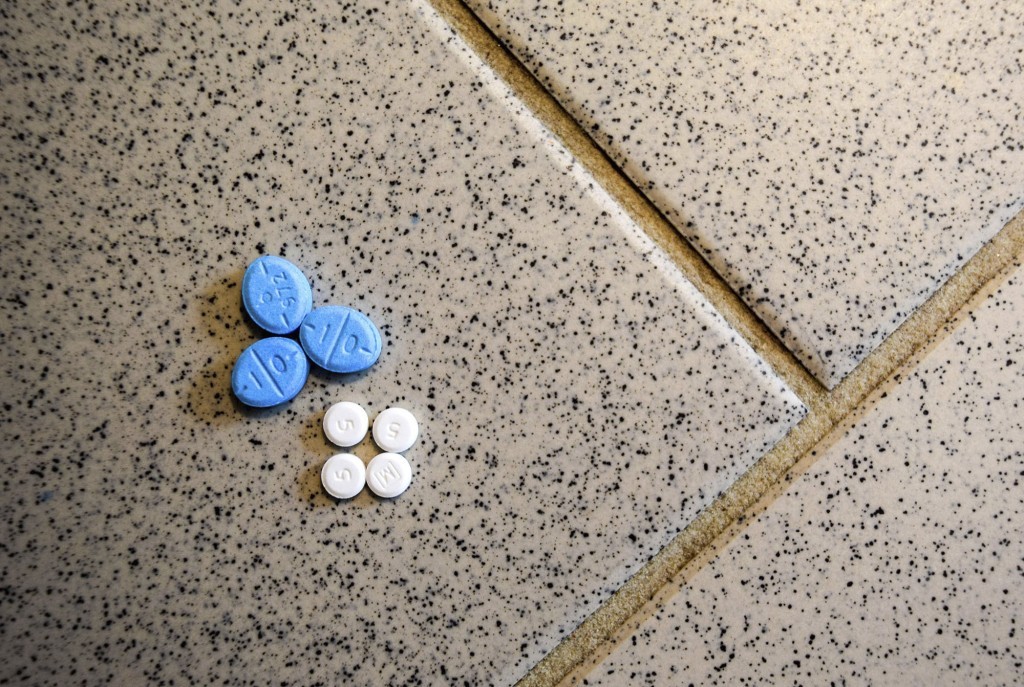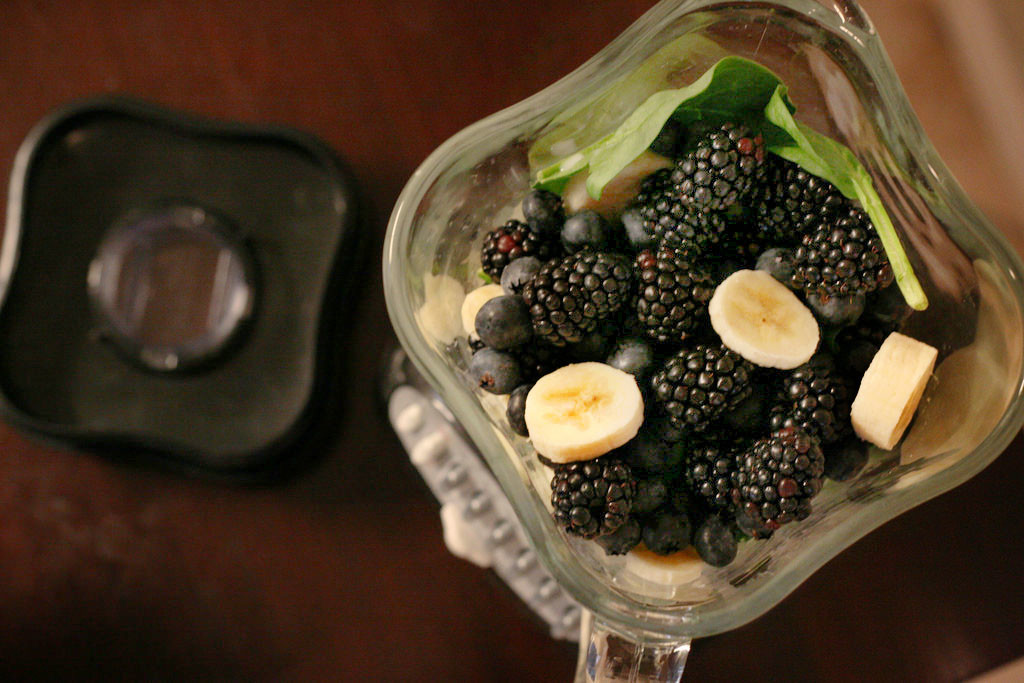When it comes down to deciding what foods are or aren’t good for you, the word “healthy” is kind of a blur. That blur gets waaaay bigger if you try to describe why they’re good or bad — unless you’ve done your research or have taken a nutrition-based class. In that case, you’re already one step ahead.
One of the more common and intimidating words in healthy food goes by the name of “antioxidants.” When we hear the word “antioxidants,” we either think “berries,” “healthy,” or “what is that?” Well, antioxidants are commonly found in berries and they are healthy. But what exactly are they?
A few scientists held a study to further understand what antioxidants are and what they do to the bodies of fitness-trained individuals. We’re going to break it down so you can be the one that tells everyone what the real deal is about antioxidants.
Antioxidants vs. Free Radicals

Gif courtesy of giphy.com
Antioxidants are things in your body that keep your cells from getting damaged—or even worse, dying. They do this by interacting with free radicals that are naturally produced in the body.
Okay, great. But what the hell are free radicals?
Well, free radicals are molecules in the body that are unstable, causing them to be highly reactive. Why? Because they have a lone pair of electrons and they don’t like to be lonely. So, they try to find any opportunity to make friends (or get more electrons, but we’ll use “friends” instead so this doesn’t sound like another boring chemistry lecture).
Free radicals are trouble makers, and will peer pressure you into being like them. You know, the kind of friends your mom said not to hang out with? Here’s where antioxidants come in to stop the hell-raising shenanigans (thanks to free radicals) currently occurring in your body. Since antioxidants are popular and have extra friends, they give one of their friends to the free radicals and tell them to chill out.

Gif courtesy of giphy.com
Basically, antioxidants prevent free radicals from going too crazy and messing up your body’s functions.
This makes antioxidants very important because free radicals are associated with aging and disease. The problem is that more free radicals get produced the more we exercise. And we all want to be sick-free, make people believe we’ve been 25 for 5 years straight, and have the best beach bod at all times, right?
Of course! So we tend to think that eating really high amounts of antioxidants while exercising can help us with that. But sometimes, less is more.
Wait, free radicals are bad. So, how can eating fewer antioxidants be good for you?
Antioxidant Consumption in Your Body

Gif courtesy of giphy.com
One scientific study was done on fifty-four young men and women who were all healthy. The goal of this study was to see what effects high doses of antioxidant supplementation would have on the human body’s natural adaptations to exercise.
Each person was randomly selected to take either the pill that contained antioxidants or a placebo. The antioxidant pill contained 1000 mg of vitamin C and 235 mg of vitamin E (yes, vitamin C and E are antioxidants, and yes, this a REALLY high amount of antioxidants).
During supplementation, all fifty-four individuals had to go through an 11-week endurance training program. The scientists measured three things on each person before and after the study: maximal oxygen uptake, a 20-meter shuttle run performance, and the level of mitochondrial proteins (which are important for muscular endurance).

Photo by Laura Lim
The results of the study showed that there was an equal amount of improvement in maximal oxygen uptake and the 20-meter shuttle run performance between those who took the antioxidant supplement pill and those who took the placebo bill.
The actual differences were seen when it came down to the mitochondrial proteins. The antioxidant supplement did not allow for the mitochondrial protein levels to rise for the people that were taking them. The placebo group had much higher levels of this protein compared to the antioxidant supplement group.
In short, high doses of antioxidants can prevent your body from reaching its full potential.
Your Body Knows What’s Up

Gif courtesy of gifrific.com
The human body is a genius. It knows that free radicals are naturally produced. So it produces its own defense mechanism — the antioxidants. This natural process allows the body to adapt to the existence of free radicals without any extra help. For that reason, taking high amounts of antioxidants will prevent this adaptation from occurring.
This was seen in the study mentioned above. More free radicals were being produced with more exercise, but the high doses of antioxidants made their bodies get lazy, and they didn’t adapt to the stress of exercise all too well.
Balance is Key

Photo by Kelly Redfield
Like most things in life, balance is key here. We need free radicals to make antioxidants and we need antioxidants to stop free radicals. But too many free radicals can be dangerous for your body and too many antioxidants aren’t really beneficial for your body. We can’t overdo either.
In a nutshell, just because something is good for you doesn’t mean that having more is necessarily better. #TeamFreeRadicalANDTeamAntioxidant




